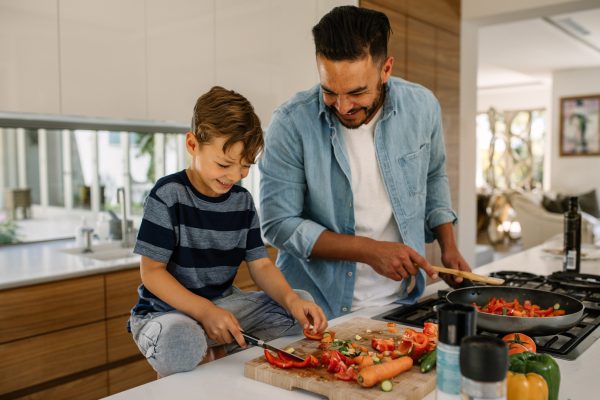Home cooking: Good for your health
If that sounds odd to you, it shouldn’t.

We already know that the more people cook at home, the healthier their diet, the fewer calories they consume, and the less likely they are to be obese or develop type 2 diabetes. A growing body of scientific evidence supports teaching patients how to cook meals at home as an effective medical intervention for improving diet quality, weight loss, and diabetes prevention.
In fact, research is turning to studying the value of nutrition programs that include cooking instruction. These programs have been shown to help people adhere to a healthier diet, eat smaller portions, and lose weight — improvements that lasted as long as a year after the study ended. These programs can even help patients with type 2 diabetes to eat healthier, lower blood pressures and blood sugars, and lose weight. Hard to believe it, but time in the kitchen can be as valuable as medication for some people with diabetes.
I recently met with a lovely patient of mine,* She has type 2 diabetes, and has trouble eating a healthy diet. Most of her meals are frozen dinners or takeout, which is all highly processed food with little nutritional value. I asked her if she would like to consult with a nutritionist.
“I have, many times,” she laughed. “They’re all very nice and everything, and it’s all good information, but I can’t cook. I get to the produce section of the grocery store, and I don’t know where to start.” Aha. No surprise, then, that multiple studies have shown that home cooking instruction significantly increase a person’s confidence in his or her food preparation skills, which translates into eating a healthier diet.
Diet and lifestyle interventions have already been shown to be quite effective for weight loss and prevention of type 2 diabetes, and adding a home cooking instruction component could be even more powerful.
Let’s get cooking!
*True story, details changed to protect the patient’s identity.
By Monique Tello, MD, MPH, Contributor, and Rani Polak, MD, Chef, MBA, Contributor


